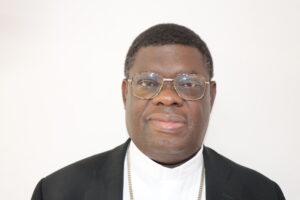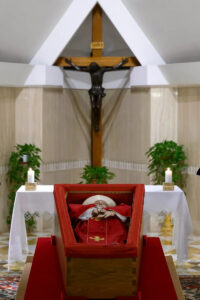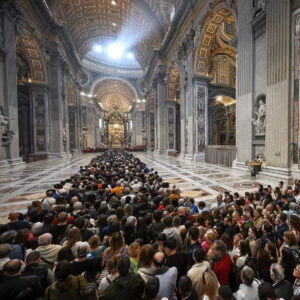KENYA: “Sensitize and Educate the People on the Real Threats of Covid,” Interfaith Council to Religious leaders

A section of the Interfaith Council for National Response to Corona Virus Pandemic, at Ufangamano House Nairobi, Tuesday, December 23, 2020
Sr. Jecinter Antoinette Okoth, FSSA
The Interfaith Council for National Response to Corona Virus Pandemic, has asked the Religious leaders in Kenya to take the initiative and offer Covid civic education in places of worship to enlighten the people on the threats of the pandemic.
In a recent press statement signed by the Chairman of Interfaith Council Archbishop Anthony Muheria of Nyeri’s Catholic Archdiocese, there is need for sensitization especially during the festive seasons when “we are used to more interactions both within the family and in the community,” so as to save lives.
“As the Interfaith Council, we are asking all religious leaders to take some time during the services in this festive period, to sensitize and educate the people on the real threats of Covid and the preventive measures we must keep to so as to keep our loved ones safe,” reads part of the statement.
The members of the Council noted further that, “Compliance is not only for our places of worship but we must extend it in all our gatherings during this period. Let everyone remind one another to wear masks and to wash our hands.”
Acknowledging that the country has undergone challenging moments for the past nine months since the first Covid-19 case was realized in Kenya including loss of loved ones, friends and relatives being infected, Churches being closed to public worship and some people losing jobs among other challenges, the Council has encouraged compliance to the provided guidelines so as to win the fight against the pandemic.
“We wish to plead once more, to all Kenyans on the importance of winning this war against Covid. We unfortunately still see the laxity with which most Kenyans are taking the indications and preventive actions given by the MoH (Ministry of Health),” the Interfaith Council that was mandated to guide the resumption of public worship appealed to citizens.
They added, “Our faiths speak of charity and care for our neighbours as one of the highest religious attributes. It is important that we live up to this noble calling by taking seriously wearing of masks, social distancing and sanitization in all public places.”
They also appealed to the politicians who “unfortunately have been defying” the regulations, “that for the sake of our children and for the sake of our future, they (may) refrain from public meetings where none of these protocols are being observed.”
The Interfaith Council for National Response to Coronavirus Pandemic comprising of 16 members from various religions in the country, was set up by the government in June to guide the resumption of public worship and are answerable to the President of the Republic of Kenya Uhuru Kenyatta.
They reiterated on the guidelines already issued to ensure safety during funerals and in places of worship reminding religious leaders about observations that worship sessions to be 90 minutes and there will be no overnight worship.
Concerning opening of schools which is slated for January 2021, the Chair of Interfaith Council disclosed in the Tuesday statement the need for clear protocols regarding the gathering of worship in schools “so that we may not end up abandoning this important service that our young people desperately need in this time.” Besides, Council members are “Willing to contribute in the discussions to ensure that there too (schools), worship goes on in a safe environment.
In conclusion the Council urged “all Kenyans who believe in God to continue praying intensely for an end to this destructive pandemic,” and to “all aggrieved health workers to have a considerate heart, so as to avoid further deaths, as we also pray for an amicable solution to end the current stand-off that would spell doom in an already desperate situation.”


